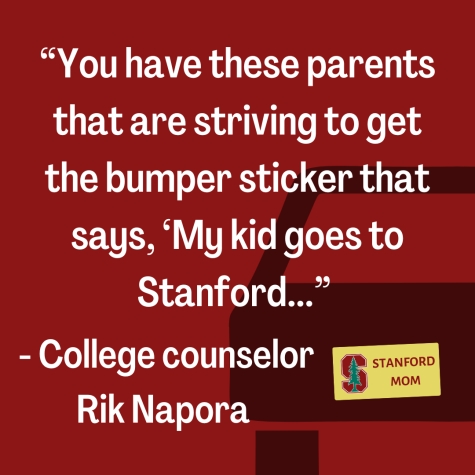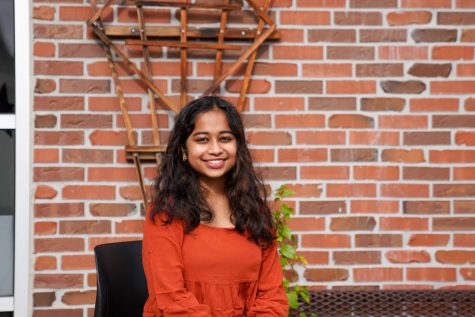Justifying different mindsets about college
Discussing the pros and cons of idolizing college
October 7, 2022
Despite growing up in the academically competitive Bay Area, junior Priyanjal Poswal has tried to separate herself from the prevalent mindset that prioritizes college and prestige over personal interests and well-being. With parents who have encouraged her to try her best and pursue hobbies, Poswal says college is only a portion of one’s life and that attending an elite college isn’t necessary for success in the future. However, while she was able to internalize her parent’s advice in middle school, Poswal has found herself doubting if the classes she takes and the activities she participates in “fit what the model should be” now that she’s at MVHS.
“My friends talk about college a lot and all the stuff they’ve done outside of school,” Poswal said. “I can definitely remember instances where I [was] like, ‘Oh, this person is so much better than me,’ which has led me to feel very inferior. But I think now I’ve gotten more confident … and I’m back into the mindset that my parents encouraged me to have because I think that it’s best for me, mentally.”
College counselor, Rik Napora, who works at the organization UCEazy, and has a background of 24 years in education, believes Poswal’s current mindset towards college is healthy and one he encourages with his own students at Newbury Park High School. However, Napora has found for many competitive students, the obsession with getting into a competitive college is often influenced by their parents’ insistence to aim for top schools.
“You have these parents that are striving to get the bumper sticker that says, ‘My kid goes to Stanford,’ so part of [it is] the ego thing,” Napora said. “[And] for a lot of parents with whom I work that might be first generation, they don’t really have an understanding of the U.S. system, and so they’ll just listen to just about anybody that they trust or that they believe they should trust, and then because they’re doing it, their kids should do it.”

As Napora has seen firsthand, this mindset ends up harming students as they apply for colleges based on prestige rather than what colleges would be a good fit for them. During their first years of high school, students take the hardest classes and participate in “prescribed activities,” dulling their high school experience by using it to just build their portfolio. When it comes to the actual application process, students suffer through tedious applications to prestigious schools.
“Applicants will have been missing out on hundreds of other colleges that could have been a much better fit,” Napora said. “Applying to those other colleges would have been much easier because if it’s much more of an authentic fit than things like essays and short answers would be much more impactful when the admissions committee reads them.”
Another pattern Napora has seen among students and parents who idolize top colleges is the frequent association of promised success and happiness with studying at a prestigious university. However, Napora emphasizes this isn’t necessarily true. The inherent fixation on attending an “elite” college is often unproductive because most jobs don’t focus on one’s college background but on their skills. Many parents who haven’t attended the best schools have very successful careers proving that the intuitive correlation between college and career success is baseless, yet still seem to intrude high schoolers in their approach to their future endeavors.
Although senior Maggie Du admits she used to be concerned about creating the “perfect profile” regarding her grades and extracurricular activities, she ultimately agrees with Napora’s belief that success doesn’t depend on the college one attends. Students should choose the college at which they believe they would do the most well.
“The best way to think about college is just the next step in your education,” Du said. “I think no matter what, students need to understand that they’re still going to learn more, [and] they’re still going to improve in college. It’s just a new experience. It depends on how they take that experience and how they utilize it to improve themselves in the best way.”

















